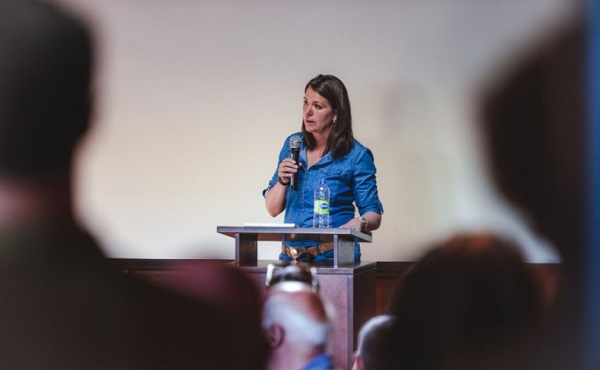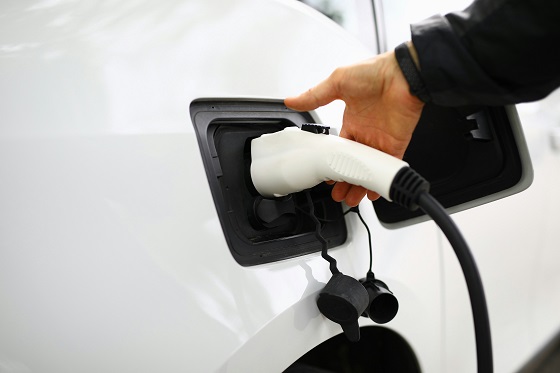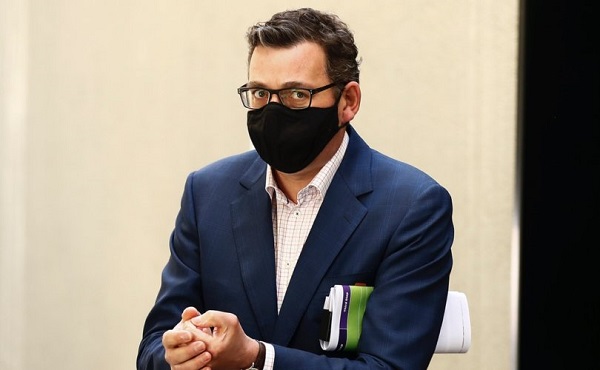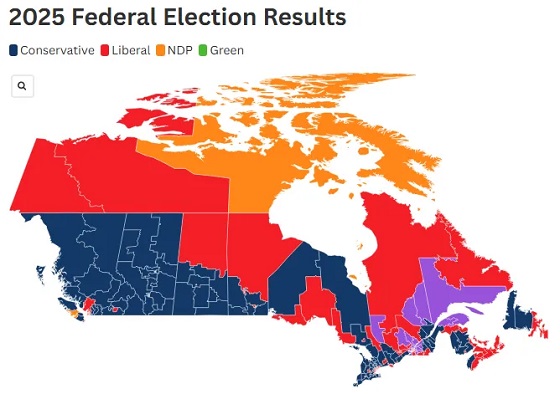Alberta
Reading and math scores plummet across Canada after COVID school closures

From the Fraser Institute
By Derek J. Allison – Professor Emeritus, Faculty of Education, The University of Western Ontario
Canada’s losses were similar, with a drop of 13 points in reading and 15 points in math. For context, a 20-point decline in test scores equals roughly one year of learning loss.
COVID school closures took a heavy toll on student learning. For parents in Canada, that’s the main takeaway from the new Programme for International Student Assessment (PISA) test results, which show substantial declines from 2018 pre-pandemic results in reading and math among 15-year-olds (the only age that participates in PISA testing).
Among high-income OECD countries, average PISA scores dropped by an unprecedented 10 points in reading and 15 points in math. Canada’s losses were similar, with a drop of 13 points in reading and 15 points in math. For context, a 20-point decline in test scores equals roughly one year of learning loss.
How did the provinces do? This is an important question, as we don’t have a national education system in Canada.
Reading scores dropped in all provinces, with the worst decline in Newfoundland and Labrador (34 points) followed by Nova Scotia (27 points), New Brunswick (20 points), Quebec (18 points), Saskatchewan (15 points), Ontario (12 points), British Columbia and Manitoba (8 points), and Prince Edward Island and Alberta (7 points).
A similar pattern emerges in math, with Newfoundland and Labrador again suffering the greatest decline (29 points) followed by Nova Scotia (24 points), New Brunswick (23 points), Quebec and Ontario (18 points), Saskatchewan (17points), Manitoba (12 points), P.E.I. (9 points), B.C. (8 points) and Alberta (7 points).
In science, the news was somewhat better, with some provinces modestly improving and only Nova Scotia (16 points) and Newfoundland and Labrador (15 points) dropping by more than 10 points. Clearly, with the exception of P.E.I., the Atlantic provinces had the greatest losses between 2018 pre-pandemic and 2022 post-pandemic test scores.
Despite the broad harvest of decline across Canada, the distribution of provincial scores remains similar to earlier results. As in 2018 and earlier, the four largest provinces—Ontario, Quebec, B.C. and Alberta—have the highest scores in all three subjects. Quebec continues to be the highest-scoring province in math, with overlapping margins of error for the other large provinces. Math scores for the remaining provinces cluster together at a significantly lower level, with P.E.I. in the middle and Newfoundland and Labrador replacing Manitoba in last place.
Reading and science scores follow a similar pattern, but with Alberta in pole position with significantly higher scores in both subjects, the other larger provinces forming a second rank cluster, and the remaining provinces a third.
The new PISA results include a rich body of information on both the extent and nature of the pandemic disruptions, which casts revealing light on the unprecedented collapse in test scores. But crucially, the large differences in score declines between the provinces cannot be simply explained by how long schools were closed. The extent and quality of learning alternatives, teacher and parental support, and socio-economic status also played important roles.
While it will take time to better understand how some provinces and schools weathered the pandemic disruptions better than others, the drops in PISA test scores underscore the challenges students and teachers face today, especially in the hardest hit provinces.
Author:
Alberta
Premier Danielle Smith hints Alberta may begin ‘path’ toward greater autonomy after Mark Carney’s win

From LifeSiteNews
Alberta’s premier said her government will be holding a special caucus meeting on Friday to discuss Alberta’s independence.
Alberta Premier Danielle Smith hinted her province could soon consider taking serious steps toward greater autonomy from Canada in light of Mark Carney and the Liberal Party winning yesterday’s federal election.
In a statement posted to her social media channels today, Smith, who is head of Alberta’s governing United Conservative Party, warned that “In the weeks and months ahead, Albertans will have an opportunity to discuss our province’s future, assess various options for strengthening and protecting our province against future hostile acts from Ottawa, and to ultimately choose a path forward.”
“As Premier, I will facilitate and lead this discussion and process with the sincere hope of securing a prosperous future for our province within a united Canada that respects our province’s constitutional rights, facilitates rather than blocks the development and export of our abundant resources, and treats us as a valued and respected partner within confederation,” she noted.
While Smith stopped short of saying that Alberta would consider triggering a referendum on independence from Canada, she did say her government will be holding a “special caucus meeting this Friday to discuss this matter further.”
“I will have more to say after that meeting is concluded,” she noted.
Smith’s warning comes at the same time some pre-election polls have shown Alberta’s independence from Canada sentiment at just over 30 percent.
Monday’s election saw Liberal leader Mark Carney beat out Conservative rival Pierre Poilievre, who also lost his seat. The Conservatives managed to pick up over 20 new seats, however, and Poilievre has vowed to stay on as party leader, for now.
In Alberta, almost all of the seats save two at press time went to conservatives.
Carney, like former Prime Minister Justin Trudeau before him, said he is opposed to new pipeline projects that would allow Alberta oil and gas to be unleashed. Also, his green agenda, like Trudeau’s, is at odds with Alberta’s main economic driver, its oil and gas industry.
The federal government under Trudeau pushed since 2015 a radical environmental agenda similar to the agendas being pushed the World Economic Forum’s “Great Reset” and the United Nations “Sustainable Development Goals.”
The Carney government has also pledged to mandate that all new cars and trucks by 2035 be electric, effectively banning the sale of new gasoline- or diesel-only powered vehicles after that year.
The reduction and eventual elimination of the use of so-called “fossil fuels” and a transition to unreliable “green” energy has also been pushed by the World Economic Forum (WEF) – the globalist group behind the socialist “Great Reset” agenda – an organization in which Trudeau and some of his cabinet are involved.
Smith: ‘I will not permit the status quo to continue’
In her statement, Smith noted that she invited Carney to “immediately commence working with our government to reset the relationship between Ottawa and Alberta with meaningful action rather than hollow rhetoric.”
She noted that a large majority of Albertans are “deeply frustrated that the same government that overtly attacked our provincial economy almost unabated for the past 10 years has been returned to government.”
Smith then promised that she would “not permit the status quo to continue.”
“Albertans are proud Canadians that want this nation to be strong, prosperous, and united, but we will no longer tolerate having our industries threatened and our resources landlocked by Ottawa,” she said.
Smith praised Poilievre for empowering “Albertans and our energy sector as a cornerstone of his campaign.”
Smith was against forced COVID jabs, and her United Conservative government has in recent months banned men from competing in women’s sports and passed a bill banning so-called “top and bottom” surgeries for minors as well as other extreme forms of transgender ideology.
Alberta
Hours after Liberal election win, Alberta Prosperity Project drumming up interest in referendum

News release from the Alberta Prosperity Project
Carney’s In. Now what?You’ve been paying attention. You understand this is really bad. Worse than that, it’s dangerous. The country has somehow chosen several more years of a decade-long Trudeau Travesty…on steroids. Because this new Prime Minister has a three digit IQ, deep and questionable connections and a momentum to accelerate the further dis-integration of a nation we all once proudly belonged to. It’s untrue to say the country is dying. But it’s also not a stretch to say it’s on life support. The era of Carney Carnage is here. While every province will experience it, there’s no secret he’s placed an extra big bulls-eye on Alberta. It’s not personal, it’s financial.His plan includes continuing to limit three of Alberta’s most prosperous sectors: energy, agriculture and, by extension, innovation. To acknowledge this requires we abandon our sense of romanticized national nostalgia. Nostalgia is a trap that prevents us from assessing the reality we exist in. For instance, GDP is considered the financial heartbeat of a country. Over the past decade of Liberal Leadership, the national GDP has been an abysmal 1.1%. By relatable comparison, Mexico was 4%, the UK was 6%, Australia had 8% growth and the US was a whopping 19%. That’s great information for an economist, but what does it mean to your pay cheque? The everyday impact on the average Albertan —say, a teacher or mechanic— of 10 long years of 1% GDP means rent’s up at least 25%, a trip to the grocery store always stings, and driving an older car is the norm because an upgrade is out of reach. Does this sound like your reality? We aren’t starving, but we’re not thriving, either.Does this make sense for 4.5 million people living with the third most abundant energy deposits in the world? There’s an absurdity to the situation Albertans find themselves in. It’s akin to being chronically dehydrated while having a fresh water spring in the backyard. The life you’ve invested for, the future you believed was ahead, isn’t happening. If Alberta stays on this path. So what can you, as an Albertan, do about it? This Fall, we’ll be provided an opportunity. A life raft in the form of a referendum. It requires curiosity, imagination and courage to step into it, but the option will be there — a once in a lifetime shot at prosperity for you and your family: Alberta Sovereignty. A successful bid means Albertans can finally paddle out of the perilous economic current that’s battered us for ten long years. Alberta has the resources, talent and spirit of collaboration to create a prosperous future for our families and communities. |
|
|
UPCOMING EVENTS: |
|
|
WHAT CAN ALBERTANS DO?Register Your Intent To Vote “YES” |
-

 Alberta18 hours ago
Alberta18 hours agoNew Alberta Election Act bans electronic vote counting machines, lowers threshold for recalls and petitions
-

 Alberta18 hours ago
Alberta18 hours agoHours after Liberal election win, Alberta Prosperity Project drumming up interest in referendum
-

 Alberta1 day ago
Alberta1 day agoPremier Danielle Smith responds to election of Liberal government
-

 Banks19 hours ago
Banks19 hours agoTD Bank Account Closures Expose Chinese Hybrid Warfare Threat
-

 Automotive2 days ago
Automotive2 days agoMajor automakers push congress to block California’s 2035 EV mandate
-

 COVID-192 days ago
COVID-192 days agoFormer Australian state premier accused of lying about justification for COVID lockdowns
-

 Autism2 days ago
Autism2 days agoUK plans to test children with gender confusion for autism
-

 2025 Federal Election19 hours ago
2025 Federal Election19 hours agoPost election…the chips fell where they fell



